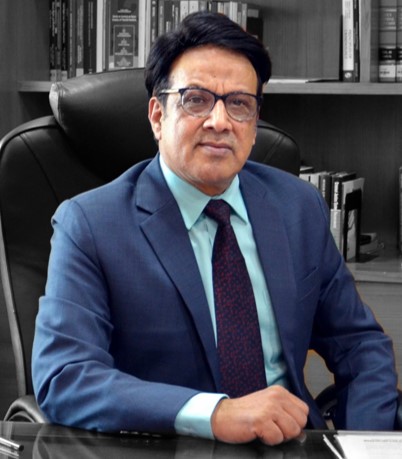Teaching Criminal Law in Indian Law Schools
- Prof. G S Bajpai, Vice Chancellor, RGNUL Punjab
To a lay person, criminal laws and the criminal justice system are representative of the State. They have a direct and often disparate impact on the lives of the citizens. Criminal sanctions not only carry with them the heavy weight of punishment, but a measure of stigma is also attached with the same. It is hardly surprising therefore, that Criminal Law as a subject has profound attraction for students and scholars across the world.
The criminal law scholarship has made strident advances in several parts of the world. The Critical Legal Studies (CLS) movement has ensured that our understanding of criminal law goes beyond the black letter of the law. The domain of studies in criminal laws is no longer limited to the general and specific parts of criminal laws – of offences, punishments and process. Instead, the CLS movement has raked up more fundamental issues involving principles of criminalisation, extent of criminal laws, over-criminalisation, role of victims, concepts of justice, rights and duties of functionaries and stakeholders etc. amongst a plethora other issues. The contributions from associated fields of criminology, victimology and political sciences have propelled our understanding of the working of our criminal laws and the criminal justice system to greater heights.
Nevertheless, the academic discourse of criminal laws remains unaffected by these developments. The growth of criminal law in India has had little to do with the discussions and debates amongst our academia. Notable thinkers and contributors who have made contributions to the development of criminal laws are few and far between. I believe that the problem lies in the fact that our pedagogy has so far concentrated only on traditional paradigms of criminal law. Our academic discourse is yet to take notice of the developments that the CLS movement has made over the past half a century.
In our classrooms, we tend to focus solely on what is written in our statutes and the judgments of our courts. There is an urgent need to shift our pedagogy beyond these traditional paradigms and open our minds to contributions from other fields. We must use these contributions to critically examine our laws and justice system. We must empower our students with the correct critical perspective and lenses to indulge in such examination. The students must be taught to study the criminal laws from historical, normative, functional, social, feminist, procedural, dialogical perspectives, amongst others.
At National Law University Delhi, I strove to promote such critical insights in criminal law. I introduced a subject titled ‘Critical Criminal Law’ in the LL.M. course for the students of criminal law specialisation. The course aims to shift the focus of the students to a more critical approach towards the criminal laws and the criminal justice system. The students are exposed to writings and works of great scholars such as Alan Norrie, Andrew Ashworth, Nicola Lacey, Paul Robinson, Markus Dubber, Antony Duff amongst several others and are encouraged to apply their critical insights on our own criminal laws and criminal justice system. Additionally, I spearheaded the conduct of several workshops at National Law University Delhi with the sole aim to include as many perspectives and voices on criminal laws as possible and invited several notable contributors such as Prof. Alan Norrie and Prof. B.B. Pande.
I have now taken the initiative of promoting Critical Criminal Law as a discipline and subject to Rajiv Gandhi National University of Law, Punjab. We recently conducted a Capacity Building Programme on Critical Criminal Law in January 2022 where we invited several notable speakers such as Prof. Martha Minow, Prof. Alan Norrie, Prof. B.B. Pande, Prof. Tom Ellis amongst others. The themes of the Capacity Building Programme were spread across historical, normative, procedural, dialogical, moral, victimological and functional critiques of criminal laws. The pedagogical structure of courses in criminal laws at RGNUL, Punjab is also being adjusted and amended to include more critical insights into criminal laws.
I believe that if criminal law scholarship is to make any significant contributions to both the global academic discourse as well as the legislative discourse in India, we must all strive to promote Critical Criminal Law as a facet of criminal laws in our countries. We must develop pedagogies and curriculums which cater to such requirements. Our students must be taught to think about the rights and wrongs in our criminal laws and criminal justice system. They must be imbued with a burning desire to examine the laws critically, and not to indulge merely in rote and mechanical forms of learning.

